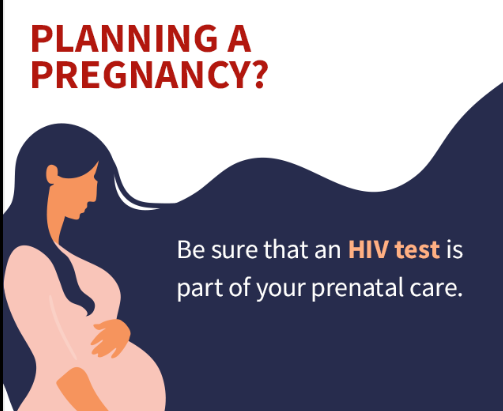Patients with HIV-positive infections may experience subfertility as a result of biological changes to their reproductive physiology. Gametes and embryos are toxic to antiretroviral drugs.
Patients with HIV-related acquired immune deficiency syndrome (AIDS) may experience subfertility as a result of biological changes to their reproductive physiology. Around 38 million people are HIV positive globally. Reproductive desires are impacted by HIV infection because it also affects psychosocial factors. Since reverse transcriptase, an enzyme that changes single-stranded RNA into DNA, is present in HIV, which is a retrovirus, antiretroviral medication is used to treat it.
The risk of HIV transmission from mother to child has decreased as a result of the highly effective antiretroviral therapy known as nucleoside analog reverse transcriptase inhibitors, or NRTIs. Antiretroviral drugs, however, are hazardous to embryos and gametes.

How HIV impacts fertility in women
Early research has shown that HIV-positive women in sub-Saharan Africa had 25–40% lower fertility rates than uninfected controls, according to a 2011 study published in the journal Fertility and Sterility. According to the study, this was the first indication that HIV and reproductive abnormalities were related.

HIV-positive women’s sub-fertility can be attributed to a variety of factors, such as biological changes, systemic illness, weight loss, stress, and drug abuse. Anovulation—when an egg is not released from the ovary during a menstrual cycle—and amenorrhea—the lack of menstruation during the reproductive years—are common in HIV-positive women. Premature ovarian failure and HIV infection may be related, according to certain research. HIV-positive women’s decreased fertility is also influenced by population dynamics, as in some areas where clinical resources are limited, the prevalence of premature mortality is higher.

Reports
An April 2017 article published in the journal AIDS said that in HIV-positive women, a longer duration of infection is linked with greater relative fertility reduction. A high viral load is associated with reduced pregnancy rates and reduced live births. HIV-positive women are at an increased risk of preterm birth, intrauterine growth restriction, stillbirth, and preeclampsia. Without intervention, an HIV-infected woman has a 13 to 30 percent risk of infecting her baby. This is called vertical transmission and can occur during pregnancy, delivery, or breastfeeding. HIV-infected patients are more likely to suffer from sexually transmitted diseases like syphilis, which in turn leads to biological alterations, impacting fertility.

How HIV impacts fertility in men
In HIV-infected men, semen volume, concentration, sperm motility, and morphology are affected, resulting in reduced fertility. HIV-infected men are also more likely to have orchitis, an inflammation of one or both testicles; hypogonadism, a condition in which the testes produce little to no hormones; and leukocytospermia, a condition characterised by a high concentration of white blood cells in semen. The World Health Organization (WHO) defines leukocytospermia as a condition in which one millilitre of semen has more than one million white blood cells.

Highly active antiretroviral therapy can also result in sperm morphological and topographical changes. Recent studies have shown that this therapy decreases total sperm count and motility and increases the proportion of abnormal sperm forms.
How HIV-positive individuals can give birth to children free of HIV
HIV has a cytopathic effect, or changes the structure of host cells, and results in chronic inflammation, fever, malnutrition, and infections of reproductive organs. Since inflammation can impact reproductive organs, immune health is of utmost importance to HIV-positive individuals. They must undergo proper treatment to maintain a robust immune system and remain fertile.

“HIV/AIDS can affect fertility by compromising immune function and causing reproductive issues. While it doesn’t inherently make individuals infertile, it can lead to conditions hindering conception. Current research suggests antiretroviral therapy improves fertility outcomes for HIV-positive individuals. Future implications involve ongoing advancements in treatment and reproductive technologies. Immune health is crucial. This is because HIV-associated inflammation may impact reproductive organs. Maintaining a robust immune system through treatment and overall health is vital for fertility in HIV-positive individuals.”

Also read-Plaque Psoriasis : A Patient’s Guide to Plaque Psoriasis And Its Symptoms
images source: Google
Disclaimer: The opinions and suggestions expressed in this article are solely those of the individual analysts. These are not the opinions of HNN. For more, please consult with your doctor




































